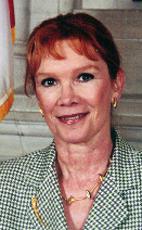Mr. Speaker, I am pleased to conclude this debate on Motion M-387. First, I want to thank all the hon. members who took part in this debate because they did so in a non-partisan way. The Canadian Alliance, the NDP, the Bloc Quebecois, the Progressive Conservative Party, everyone took part in a truly non-partisan manner, setting aside a number of convictions.
As we know, gun control does not have unanimous support. I think that a vast majority of members still believe in it. That is why I agreed to the amendment of the hon. member for Châteauguay. Since some people were concerned that a possible suspension of the program might jeopardize its survival, I agreed to amend my motion to prevent this possibility.
The relevancy of the Canadian Firearms Program was not at issue here, but rather its mismanagement. It is obviously useful to remember that, instead of costing $119 million as initially budgeted, the program's development and implementation costs will probably exceed $1 billion by 2004-05.
For a long time I have been worrying that the management style of federal officials would lead directly to huge cost overruns. The only reason my fears were not confirmed until last fall was because the federal government's secrecy prevented us from finding out the true extent of the problem.
The Auditor General was particularly scathing in her report last December, when she said:
The Department of Justice did not provide Parliament with sufficient information to allow it to effectively scrutinize the Canadian Firearms Program and ensure accountability. It provided little financial information and insufficient explanations for the dramatic increase in the cost of the Program.
Transferring this program to the Solicitor General was completely pointless and again raises serious problems in terms of accountability and transparency. Indeed the Minister of Justice said that his plan would reinforce the program's accountability and transparency. It has done the opposite.
The rule that prevents us from questioning a former minister about his previous responsibilities simply allows the justice minister to avoid any questions about this scandal. That means that the period between December 1995 and April 2003 will continue to be a big black hole. No questions, no answers, and no one to take responsibility.
As for the Solicitor General, he can feign ignorance, because when things went wrong, he was not the one responsible for the program. So we are far from attaining the accountability and transparency the minister promised when unveiling the action plan.
What is more, the government's wonderful plan had barely been unveiled when it started going off the rails. The transfer slated for April 1 finally happened two weeks later, on the 14th, and as if that were not enough, the government got mired in explanations, each of which was more incoherent than the last. In short, the program was not transferred for reasons of jurisdiction or good management. Had that been the case, Treasury Board would not have had to inject another $10 million into it, as was done just yesterday, in order to again make up for this cost overrun.
There could also be some other reservations expressed that would be totally legitimate. A culture of cover-up does not change overnight.
Since time is of the essence, I will simply sum up by saying that there is no question of our approving such a huge cost overrun. I invite all members to set partisan politics aside and vote in favour of my motion and the amendment. We must get to the bottom of this scandal. A solution that respects both the objectives of public safety and the principles of proper financial management must be found, once Parliament is fully informed and gives its approval.

